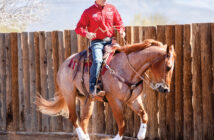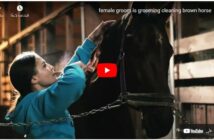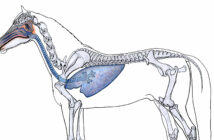by Al Badia,
Horses are majestic creatures with a complex and fascinating behavior. As domesticated animals, they have adapted to human interactions, but their natural instincts and behaviors still play a crucial role in their wellbeing and interaction with the world.
One of the most important aspects of horse behavior is their social structure. Horses are herd animals, and they form close bonds with their herd mates. They have a hierarchical social structure, with a dominant leader (usually a mare) and lower-ranking members. The horses communicate through body language and vocalizations, and they have a complex system of signals that help them establish their position within the herd.
Understanding the social structure of horses is essential for their care and wellbeing. Horses that are isolated or kept in small groups may experience stress and anxiety, which can lead to behavioral issues and health problems. Providing horses with the opportunity to interact with other horses and establish social bonds can help them feel more secure and content.
Another important aspect of horse behavior is their flight response. Horses are prey animals, and their instinctive response to danger is to run away. This can lead to dangerous situations for both horses and humans if they are not properly trained and handled. Horses that are fearful or anxious may become reactive and unpredictable, putting themselves and their handlers at risk.
Training and handling horses requires an understanding of their natural instincts and behavior. A good horse trainer will work with the horse’s instincts, rather than against them, to establish trust and communication. Training should be based on positive reinforcement and clear communication, rather than punishment or force.




